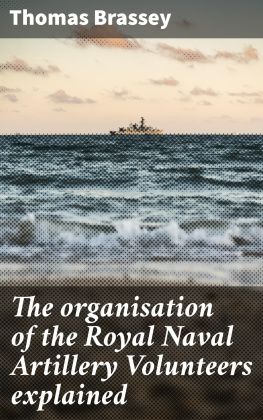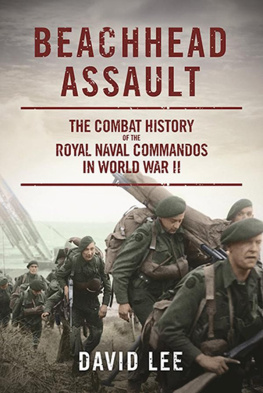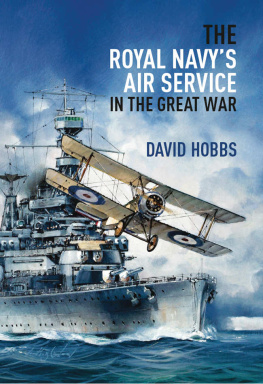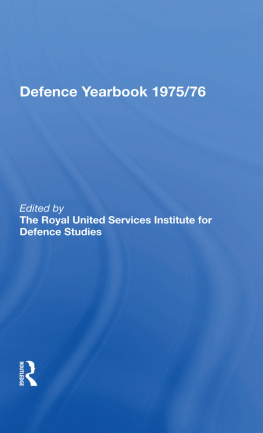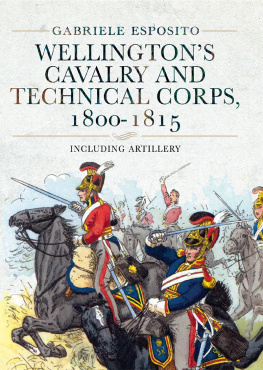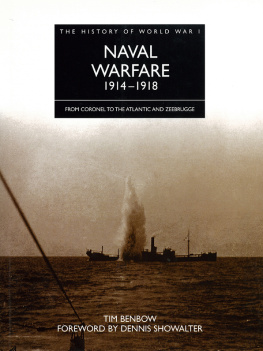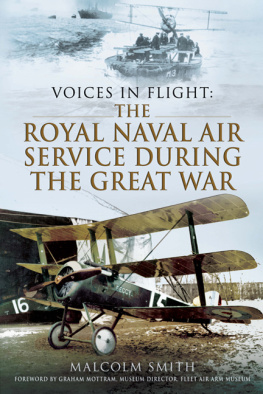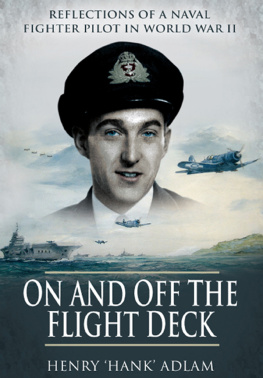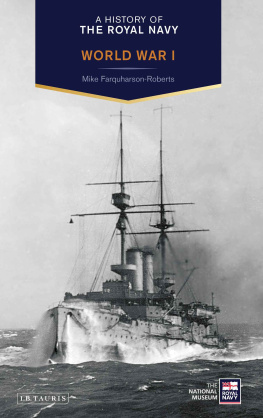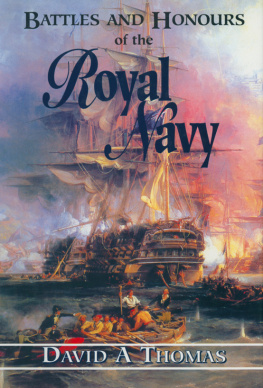The Organisation of the Royal Naval Artillery Volunteers Explained
The Organisation
Of The
Royal Naval
Artillery Volunteers
Explained
By
Thomas Brassey, M.P.
London
Longmans, Green, And Co.
1874
Royal Naval Artillery Volunteers.
It has been thought desirable to publish the following statement, for the purpose of giving some explanation of the services, duties, privileges, and general organisation of the Royal Naval Artillery Volunteers.
How to be recruited.
In inviting persons to enrol themselves in the corps, the Lords Commissioners of the Admiralty desire to extend the volunteer movement, so successfully established as an auxiliary to the land forces, to the defence of this country by sea. The proposal is novel and unprecedented in its character. In any other country than our own, it would, in all probability, be visionary. In England, however, we possess a guarantee for the success of such an undertaking, which cannot be found elsewhere. A taste for maritime pursuits pervades this insular nation, and the hope may therefore be confidently entertained that the appeal, now made to the patriotism of the nautical and aquatic sections of the community, will not be urged in vain.
Naval opinions in favour of such a force.
Eminent naval authorities have, for many years past, recommended the formation of a corps, for the purposes of coast defence, composed of persons who, while not possessing the wider experience of the seaman, are accustomed to the management of boats, and in the constant habit of going afloat. The Act for the Royal Navy Artillery Volunteers, passed in the last session at the instance of the Admiralty, and the regulations recently issued under that Act, afford the most convincing proof that, in the estimation of those who are actually responsible for the efficiency of the naval service, such a force is desirable. The concurrence of the naval members of the late administration in the various steps which have been taken, may likewise be quoted, in order to show that there is a general desire, among those to whom the welfare of the navy is an especial object of solicitude, for the success of the movement, which it is the object of the present writer to explain.
The harbour defence only.
It has been already stated that coast defence, and not service at sea, constitutes the especial sphere proposed for the Royal Naval Artillery Volunteers. The term coast defence is perhaps, in a certain sense, a misnomer. The defence of the most important of our commercial harbours against an attack from the sea could not be effectually conducted by a force composed exclusively of men trained for the land service alone. The approach to all the great ports of the United Kingdom from the sea involves the navigation of extensive estuaries, where floating batteries, and armed rafts, and the use of torpedoes, are essential to a complete defence, and would in point of fact effectually prevent the nearer approach of a hostile fleet. In the laying out of torpedoes on an extensive scale, a flotilla of boats would be required; and in furnishing crews for such boats, the well-trained oarsmen, who, it is hoped, will be found willing to enroll themselves in the Royal Naval Artillery Volunteers, would be enabled to render valuable service. In all probability, by their co-operation in the hour of danger, they would release an equal number of highly trained seamen, who would form the crews of sea-going cruisers. All our greatest ports, London, Hull, Newcastle, Leith and Granton, ports for Edinburgh, Glasgow, Bristol, Southampton, Belfast, Dublin, Cork, are situated at the head of an extensive estuary, or at some distance from the mouth of a navigable river. The mere enumeration of these names is sufficient to show how large a sphere there might be, in the event of a threatened invasion, for the employment, in the important and essential task of harbour defence, of an auxiliary force composed, not of trained seamen, but of persons who may be described generally as aquatics.
It is to be observed that a mere oarsman, although not trained at the great guns, or in the use of rifle and cutlass, would be enabled to do good work in a service in which the use of boats must be largely resorted to; and that, in order to take a number at a gun mounted on a raft, such as the 'Nancy Dawson,' which the late Captain Cole improvised for our naval operations in the Sea of Azof, or to serve in a gun's crew in a floating battery for harbour defence, neither sea legs nor sea experience are indispensable qualifications. For such duties those qualities are required which equally combine to make a good gunner and a good soldier, whether afloat or on shorea fair share of physical strength and activity, intelligence, and, above all, courage and patriotism.
The force need not be numerous.
Designed, as the Royal Naval Artillery Volunteers have been, for the especial work of coast and harbour defence, it is not necessary that the corps should be very numerous. It certainly need not exceed the numbers of our amateur yachtsmen and oarsmen, for whom the opportunity, now offered, of taking their share in the national defence, is chiefly intended. Enough will have been done, if a brigade can be formed at each of the principal ports, of a strength varying from 200 to 600 men.
The training required.
Having described the general scope of the duties, which would devolve on the Royal Naval Artillery Volunteers, in the event of their being called out for actual service, the nature of the training proposed for the members of the force may be briefly explained. The first consideration must be to familiarise them, to some extent, with the management of boats. This instruction might occupy much time in a corps composed of men, who had never been in the habit of going on the water; but, as the Royal Naval Artillery Volunteer corps is to be recruited in a large proportion from among aquatics, many of their number may be expected to possess this qualification without the necessity for special instruction.
The next point to claim attention will be the exercise at the great guns. Here I may venture to affirm, from personal experience, that the naval gun drills have been, in every detail, so carefully considered, the instructors are so completely masters of the subject which they have to teach, and the mechanical appliances are such effectual substitutes for heavy manual labour, that a few days of constant attention will suffice to make a volunteer a useful man in a gun's crew. The class of recruits required for the Royal Navy Artillery Volunteers possess advantages of intelligence and education, far beyond those which the practical seamen can enjoy; and we may anticipate, from the experience already acquired, that they will form some of the smartest gun's crews in any branch of the naval service. There is neither insurmountable difficulty, nor unduly fatiguing labour, in the drill at the great guns. The intricacies could be mastered in a few days, if the volunteers were kept continuously at drill, as they necessarily would be, should they ever be called out for actual service.
The essential point in a volunteer corps is to secure men physically capable of doing their work, and who may be confidently relied upon as ready to serve, whenever they may be called upon.
The small-arm exercises are still more easily mastered. A rowing man will find himself able to use his cutlass efficiently in a few hours; and, after a couple of days of continuous drill, he would be able to go through the manual and platoon exercises with satisfactory smartness and precision.
Rowing and yachting gentlemen will perceive that they will have no difficulty in acquiring the knowledge of their drills, which is required in order to make them efficient, in the winter months. They will not find that their favourite amusements on the water, in the summer months, are incompatible with service in the Royal Naval Artillery Volunteers.

